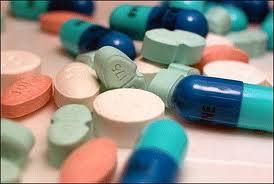
Proton Pump Inhibitors (PPI)In order to understand what a Proton Pump Inhibitor is, you must first understand what a proton pump is. A proton pump is a molecule found in certain cells within the stomach. These cells “pump” acids into the stomach via a pumping method, such cells also take the non-acidic potassium ion out of the stomach and replace it with an acidic hydrogen ion. This hydrogen ion makes the cells acidic in the stomach. By putting more hydrogen ions in the stomach, the proton pumps make the contents of your stomach more acidic.
In proper storage of this medication make sure that you place it in a room temperature not exceeding to 30 C. Keep the lid tightly closed and our of children’s reach. Also, keep it away from direct sunlight, heat and moisture. Throw away all outdated and no longer needed PPIs. For proper disposal, ask your pharmacist or physician. Shelf life of this drug is up to 36 months.
| |||
*Disclaimer: The information found on this website should not be used as a replacement for professional medical care for the diagnosis, prevention, or treatment of reflux. Please consult with your general practioner or pharmacist before attempting to use any medication (prescription or OTC) or following any of the treatment methods mentioned. This information is provided solely to help you become as informed as possible about the acid reflux condition and its symptoms. |
Home About Us Privacy Contact Us Site Map
© Copyright www.acidrefluxsymptomsnow.com , 2010. All Rights Reserved.
Content Network: asbestos compensation | lower back pain relief



